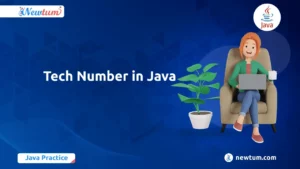In 2025, the tech world is evolving rapidly, with new programming languages emerging every year. However, among the sea of options, C++ remains a staple in the industry. Despite its long history, C++ continues to power everything from high-performance software to video games. Aspiring programmers often face the challenge of choosing a language that will not only be relevant today but also in the future. The solution is clear—Why learn C++ in 2025? C++ has stood the test of time and is more relevant than ever. With its enduring presence and high demand in various industries, learning C++ in 2025 is an investment in your programming career.
C++ and Its Enduring Legacy
C++ was created by Bjarne Stroustrup in the early 1980s as an extension of the C programming language, introducing object-oriented features. Over the decades, C++ has evolved to support modern software development needs, balancing efficiency with powerful abstraction mechanisms. Today, it powers critical technologies, from operating systems like Windows and Linux to high-performance applications in fields like finance, embedded systems, and game development. Many game engines, such as Unreal Engine, and real-time systems rely on C++ for its speed, control over system resources, and low-level manipulation. Its ability to manage memory effectively and handle complex tasks efficiently ensures C++ remains a vital part of the tech ecosystem.
Top 5 Reasons Why Learn C++ in 2025?
Reason 1: High Demand in Game Development
C++ is a cornerstone in game development, powering popular engines like Unreal Engine and Unity. Many AAA games rely on C++ for its speed and control. Games like Fortnite, The Witcher 3, and Grand Theft Auto V showcase C++’s ability to handle complex graphics, real-time processing, and high performance.
Reason 2: Competitive Programming and Problem Solving
C++ excels in coding competitions due to its speed, efficiency, and the extensive Standard Template Library (STL). It’s a preferred choice for solving complex algorithmic problems quickly and efficiently, making it indispensable for programmers participating in hackathons and competitive programming events.
Reason 3: Foundation for Mastering Advanced Technologies
Learning C++ provides a solid foundation for delving into advanced fields like Artificial Intelligence (AI), the Internet of Things (IoT), and robotics. C++ is essential for building performance-driven applications and devices in these technologies, where low-level control is crucial for optimal performance.
Reason 4: Industry-Wide Application
C++ finds applications across various industries, from financial systems, where speed and accuracy are critical, to automotive software for embedded systems and real-time simulations. Its versatility in managing hardware resources makes it a go-to language for high-performance applications.
Reason 5: High-Paying Career Opportunities
C++ developers are in high demand, with many industries seeking skilled professionals to create performance-driven solutions. As of 2025, C++ developers can expect to earn competitive salaries, often exceeding the average for other programming languages due to the language’s complexity and its role in critical industries.
How to learn C++?
For beginners starting their C++ journey in 2025, several resources can make the process smoother and more engaging. Here are some recommendations to get you started:
Strengthening Understanding of Other Languages
Starting with C++ is an excellent way to build a strong foundation in programming. The language’s low-level control over memory management and performance-oriented features provide a deeper understanding of how other programming languages work, making it easier to learn languages like Java, Python, or Rust in the future.
Online Courses on Newtum
Newtum offers a range of beginner-friendly C++ courses that focus on fundamental concepts, problem-solving, and hands-on projects. These courses are designed with interactive lessons and real-world examples, making it easier to grasp C++.
Complete Blogs on Newtum
Explore Newtum’s detailed blogs dedicated to C++ programming. These blogs break down complex concepts, from basic syntax to advanced topics, and offer code snippets, practical examples, and expert insights.
Books for Beginners
Popular books like “C++ Primer” by Stanley B. Lippman and “Accelerated C++” by Andrew Koenig offer deep dives into C++ with clear explanations, examples, and exercises. These books help solidify the concepts that you’ll encounter in online resources.
Project-Based Learning Platforms
To truly master C++, look for project-based learning platforms like Codecademy, Coursera, or Udemy, where you can work on building real-world projects such as games, simulation tools, or applications that require advanced C++ skills.
Addressing Myths About C++
C++ has been around for decades, and with its long history, many myths have developed around the language. Let’s take a look at some common misconceptions and why they don’t hold up in 2025.
- Myth: C++ is outdated.
Reality: While C++ has been around for a while, it has continuously evolved. The language has kept pace with modern trends, incorporating features like lambda expressions, smart pointers, and concurrency support. It remains one of the most powerful and versatile languages used in tech today, especially in game development, system software, and high-performance applications. - Myth: C++ is too hard to learn.
Reality: Although C++ is more complex than some languages, it’s not insurmountable for beginners. With proper guidance and resources, learning C++ can be a rewarding experience. Its clear syntax and structured approach to programming make it a great choice for understanding key concepts like memory management, object-oriented programming, and performance optimization. - Myth: C++ is only for advanced programmers.
Reality: C++ is not just for seasoned developers. Beginners can start with the basics and gradually work their way up to advanced topics. With a variety of online tutorials, books, and forums, C++ is accessible to learners of all levels. - Myth: C++ is no longer in demand.
Reality: Far from it! C++ is still a highly sought-after language in industries such as gaming, finance, automotive, and embedded systems. Companies continue to rely on its speed and efficiency, ensuring that C++ developers are in high demand and well-compensated.
By dispelling these myths, it’s clear that C++ remains an essential and relevant language to learn, even in 2025.
Why Learn C++ in 2025: Real-Life Success Stories
C++ has played a crucial role in many industry breakthroughs. Let’s take a look at some of the real-life success stories where developers and companies leveraged C++ to shape the future:
- Epic Games – Unreal Engine
Epic Games’ Unreal Engine, one of the most powerful game development engines in the world, is largely written in C++. This game engine powers some of the biggest AAA games, including Fortnite, Gears of War, and Final Fantasy VII Remake. C++ allows Epic Games to achieve the high-performance, real-time rendering capabilities needed to create visually stunning and interactive game worlds. - NASA – Space Exploration Software
NASA uses C++ for many of its mission-critical systems, including software used in space exploration. The Mars Rover and various satellite systems rely on the power and reliability of C++ to operate effectively in harsh environments where precision is crucial. - Toyota – Automotive Software
Toyota has leveraged C++ for its automotive software, particularly in its self-driving car technologies. C++ is used for real-time data processing, control systems, and vehicle simulation, where speed and efficiency are vital. - Bloomberg – Financial Systems
Bloomberg, one of the leading financial services companies, uses C++ for its financial trading systems, which demand extremely high performance and low-latency execution. The reliability and speed offered by C++ make it ideal for processing large volumes of transactions in real-time. - Google – Chrome Browser
Google’s Chrome browser, one of the most popular browsers in the world, relies heavily on C++ for its core functionality. Its use of C++ ensures fast page rendering, multi-threading, and performance optimization, making Chrome one of the most efficient web browsers available.
Have you tried our amazing tool yet? Head over to our C++ online compiler. It’s AI-powered, allowing you to instantly write, run, and test your code. Happy coding!
Infographic/Visual Aid: C++ Timeline & Use Cases in 2025
Here’s a comparison chart and timeline that highlights C++’s growth, its usage across different industries, and its relevance in 2025:
| Year | C++ Milestones | Key Use Cases |
|---|---|---|
| 1985 | C++ Released | Early adoption in system software |
| 2000s | C++ Standardized (ISO/IEC 14882) | Game development, financial systems |
| 2010 | C++11 Introduced (New features like lambdas, smart pointers) | High-performance computing, robotics |
| 2025 | C++ still dominates in Game Engines, AI, Automotive, and Real-time Systems | Used by major companies in diverse industries: Epic Games, NASA, Toyota, Bloomberg, Google |
The timeline and use cases show how C++ has evolved and stayed relevant in major technological areas, continuing to be a driving force behind advancements in gaming, finance, AI, and more. This longevity is a testament to C++’s powerful capabilities and its ongoing importance in 2025 and beyond.
Conclusion
I hope you now have more reasons to learn C++ in 2025. As C++ remains a vital skill in 2025, powering game development, competitive programming, and industries like AI and automotive. With high-paying career opportunities and diverse applications, it’s a language worth mastering. Start your C++ journey today with Newtum’s courses and blogs, and build a future-ready tech career!



